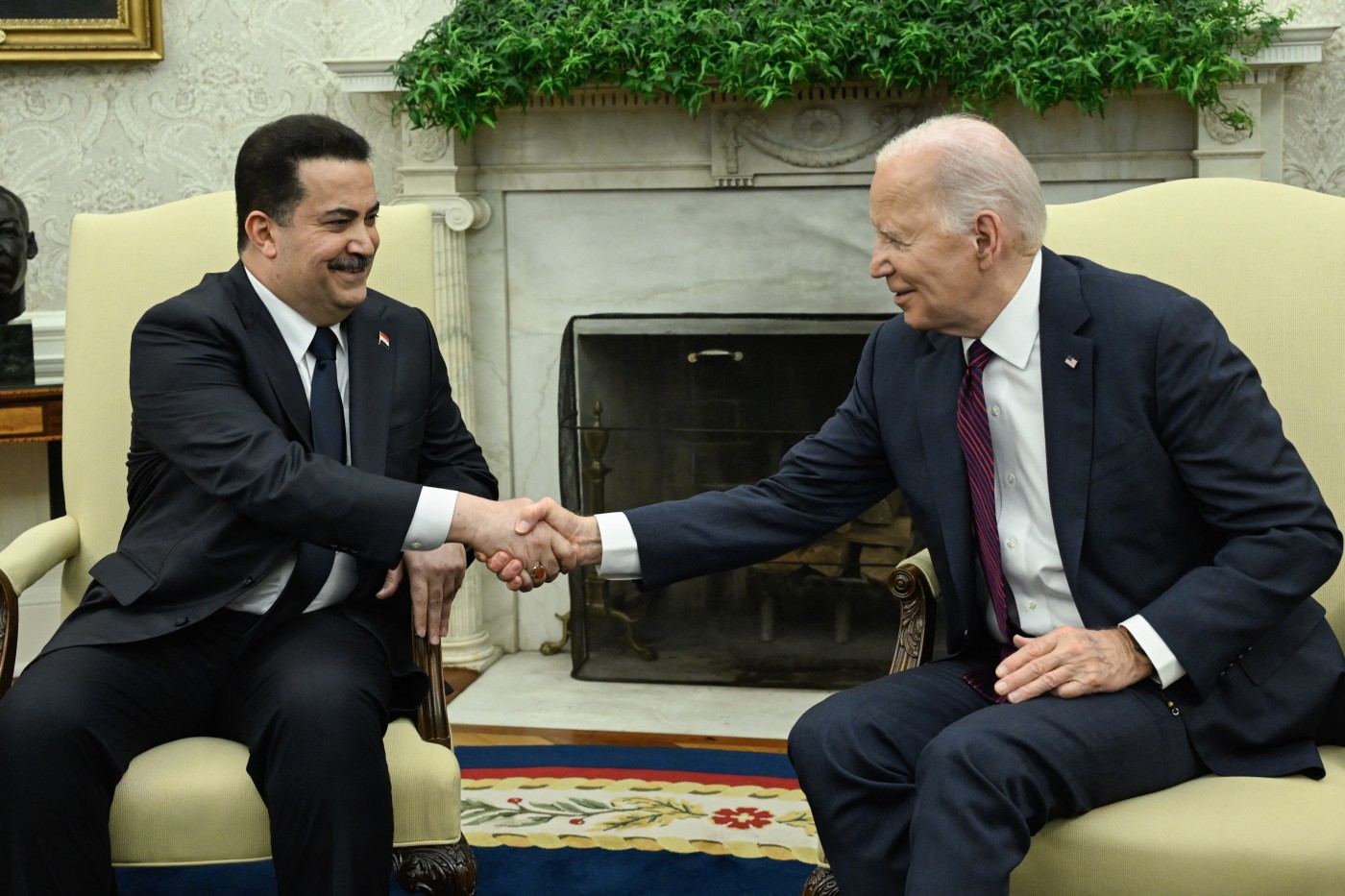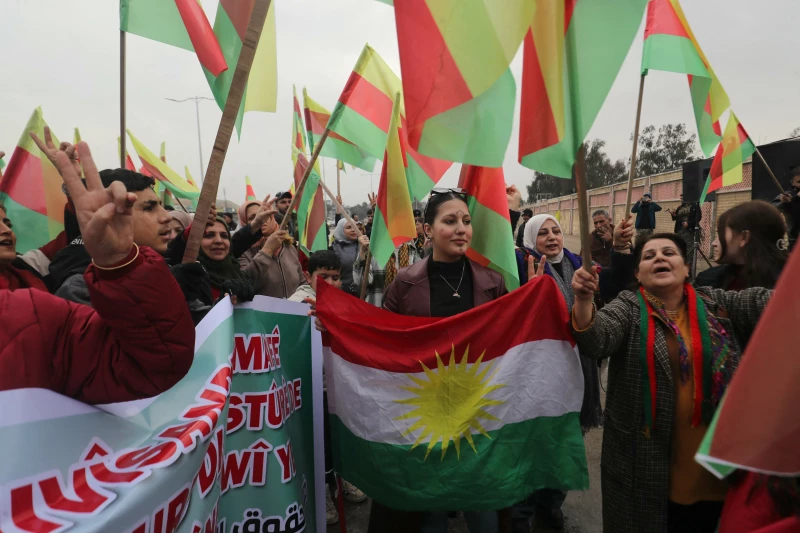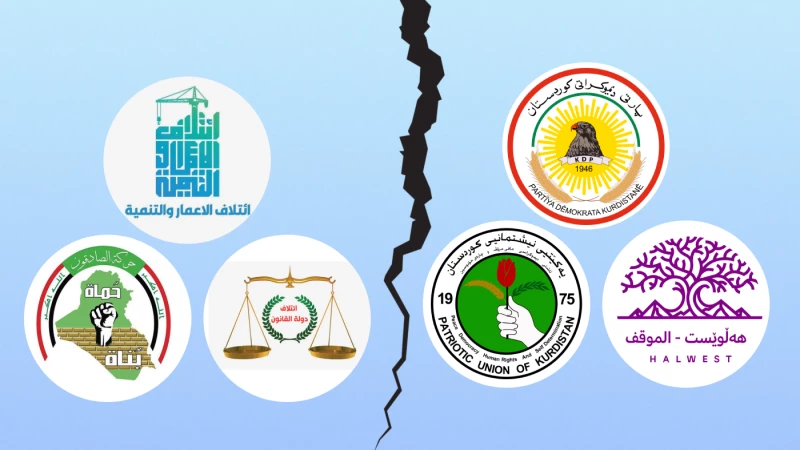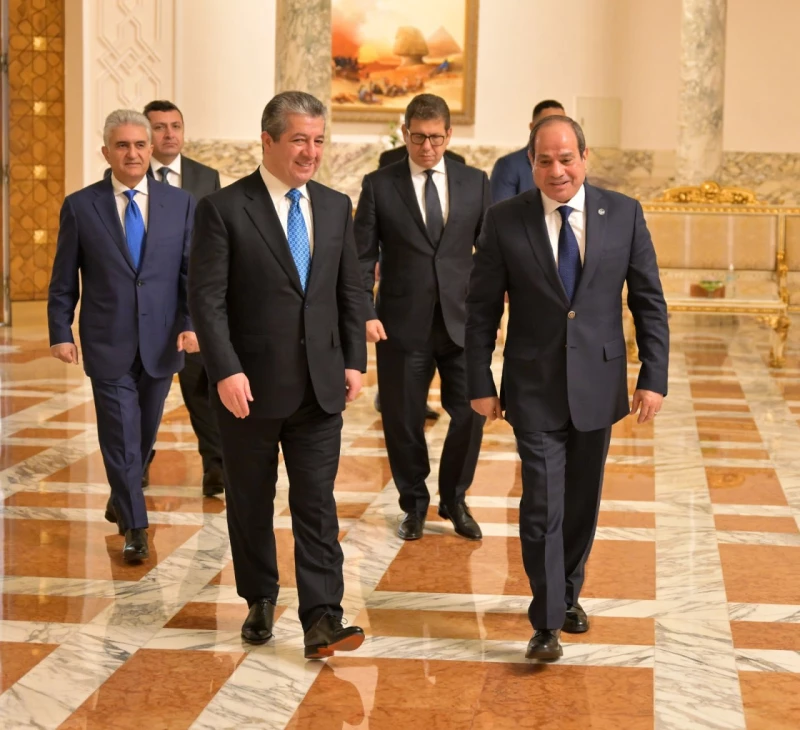Iraqi Prime Minister Mohammed Shia' al-Sudani's visit to Washington on April 15 occurred against the backdrop of a complex security landscape in the Middle East. Beyond Iraq's internal political, security, and economic hurdles, its ties with the US have come under renewed scrutiny amid escalating tensions between Iran and Israel. These pressing issues undoubtedly featured prominently in discussions between Sudani and President Joe Biden.
Despite the significance of the topics discussed by Sudani and Biden, the issue of forging a comprehensive partnership with the US took the center stage. This was underscored by Sudani's engagements with American officials and companies, particularly given the context of ongoing efforts to finalize the work of the High Military Committee between Baghdad and Washington aimed at restructuring the presence of US forces in Iraq.
These discussions occur amid persistent calls from influential factions, particularly those with ties to Iran, to see the withdrawal of US forces, including those belonging to the global coalition combating ISIS.
During his visit, Sudani actively engaged with a spectrum of American political figures, both official and unofficial, alongside connecting with Iraqi communities in the US. This multifaceted approach aimed to apply pressure on the Biden administration from diverse angles in pursuit of charting a new course for relations.
While attaining such a goal remains challenging given Iraq's volatile landscape, the significance attached to the success of this visit was palpable in Sudani's deliberate avoidance of pushing for definitive conclusions on the agenda items in Washington.
He acknowledged the necessity of maintaining flexibility until mutual understanding is achieved on overarching issues, notably the presence of American military forces in Iraq.
American priorities in Iraq
Following the US withdrawal from Iraq in 2011, and in line with the Security Agreement between the United States and Iraq and the Strategic Framework Agreement for the Operations of US Forces in Iraq signed between the two nations in 2008, American strategy in Iraq has centered on tackling various issues pertaining to Iraqi and regional security.
The US played an active role in the military defeat of ISIS and the recapture of most areas it previously controlled in northern and western Iraq by December 2017. However, the ongoing frequency of attacks by the organization suggests that there is more work to be done in Iraq. This issue was the focal point of discussions between Sudani and US Secretary of Defense Lloyd Austin.
The second issue revolves around Iran's role in Iraq.
Since 2003, Iraq has become a primary arena for strategic competition between the US and Iran. The US has made significant efforts to contain Iranian influence in Iraq and has recognized the danger of Iranian expansion in Iraq, particularly in the post-ISIS era.
Following the escalation of Iranian-American tensions on Iraqi soil since 2020, Iran has set a goal for its policy in Iraq centered on the removal of US forces from the country. Leveraging its allies among the Shia political and military factions, Iran has compelled the forces of the global coalition, including US forces, to reduce their presence and to reposition themselves in Iraq on multiple occasions.
The third issue concerns the overhaul of Iraq's security sector. The US has made considerable strides in this regard, offering substantial support through training, consultation, and technical and logistical assistance.
Recognizing the potential ramifications, the US is wary of departing Iraq, particularly under the conditions favored by certain influential factions, notably those with ties to Iran. Such a move could undermine the progress made in bolstering Iraq's security apparatus.
There is a prevailing belief among US security circles that Iran-aligned allies could seize control of Iraq's security landscape if left unchecked. Moreover, US officials are adamant that American military technology should not fall into the hands of Iranian-backed groups within Iraq.
Consequently, the US has emphasized the need for genuine assurances from the Sudani government on this matter before considering any discussions regarding the withdrawal timeline for US forces from Iraq.
As for the fourth issue, it centers on economic affairs, with the US aiming to tighten its grip on the Iraqi economy, particularly concerning dollar transactions. This entails scrutinizing the roles of Iraqi banks, addressing the matter of frozen Iranian funds in Iraq, and overseeing the activities of energy and oil companies operating in the region. These topics took center stage during Sudani's discussions in Washington.
The last matter of concern for Washington is the reconciliation of relations between Baghdad and Erbil. Although Kurdistan Regional President Nechirvan Barzani extended support to Sudani prior to his Washington visit, it does not mask the severity of the ongoing crisis between Baghdad and Erbil, particularly in political and economic spheres.
The Biden administration aims to foster a level of stability in Baghdad-Erbil relations, recognizing its significance to American interests in Iraq.
Mutual strategic responsibilities
The conflict in Gaza highlighted the intricate dynamics of the Middle East, exposing the challenges faced by the region. It also underscored the limitations of the Sudani cabinet in controlling Iran-backed armed groups.
These factions have actively participated in Iran's military support for Hamas. Many of them have united under a new military entity known as the Islamic Resistance in Iraq and Syria, conducting numerous attacks on American and Israeli targets.
As a result, the Biden administration has repeatedly urged the Sudani cabinet to take more decisive action in curbing these factions. US Secretary of State Antony Blinken raised these concerns during discussions with his Iraqi counterpart at the inaugural meetings of the High Military Committee between Baghdad and Washington.
Iraq is in need of a fresh approach to construct a robust military force capable of tackling security threats stemming from ISIS and the uncontrolled spread of weapons. Additionally, it must bolster border security with Syria, Turkey, and Iran. Hence, Prime Minister Sudani's visit to the US could facilitate a reevaluation of the security ties between Iraq and the US.
The US has the potential to play a crucial role in reviving Iraq's military and security capacities, which were severely depleted during the conflict with ISIS. According to US assessments, Iraq's military necessitates retraining and rehabilitation efforts spanning three to fives years to effectively fulfill its security obligations. Furthermore, Iraq needs to overhaul its weaponry systems and reinstate and upkeep several military installations.
The Iraqi Air Force, despite possessing some US-made F-16 aircraft, remains relatively small and limited. Its development of modern air combat capabilities has only recently begun. During the conflict with ISIS, Iraq heavily relied on aircraft provided by the US-led coalition for support.
However, Iraq currently lacks essential air defense systems such as advanced missile defenses, airborne warning and control systems (AWACS), and ground-based air defense capabilities. This deficiency in military capability has been exploited by both Iran and Israel. Iran utilized Iraqi airspace to launch numerous drones and ballistic missiles towards Israel, taking advantage of Iraq's vulnerability. Similarly, Israel also utilized Iraqi airspace in its alleged recent airstrike on a military base in Isfahan.
Sudani made efforts to address the military imbalances within the Iraqi security forces through extensive agreements with the US Department of Defense. These efforts involved activating several pending deals between Baghdad and Washington.
According to the Pentagon, the US State Department approved the sale of $140 million worth of military equipment for logistical support and training purposes for American aircraft contractors and related equipment for Iraq.
This training and support are intended for the Iraqi fleet of C-172 and Cessna 208 aircraft, with Northrop Grumman designated as the primary contractor. Furthermore, Sudani engaged in discussions with several American military companies, including Lockheed Martin, which is responsible for manufacturing F-16 aircraft, to explore additional cooperation opportunities with Iraq.
The progression of Iraq's military capabilities would undoubtedly be stymied if there were insistence on terminating the mission of US forces in Iraq without a strategic commitment binding their relations with the nation. The US withdrawal from Iraq in 2011 resulted in significant fractures within the Iraqi army, which struggled to combat ISIS attacks in 2014. However, the United States' decision to re-engage in Iraq in 2016 proved pivotal in defeating the organization and securing other achievements on the ground.
The US acknowledges that securing substantial and wide-ranging commitments from the Sudani cabinet could enhance its effectiveness in the Iraqi arena. These commitments particularly relate to safeguarding its military presence in Iraq and protecting American interests from potential future threats originating from Iran and its Iraqi allies.
Biden underscored this point in his remarks while welcoming the Sudani-led delegation in the Oval Office. What's of greater significance is the recognition by the United States of the need to pressure Iraq into diversifying its energy resources, reducing reliance on Iran. Iraq's continued energy imports from Iran have significantly undermined the efficacy of US sanctions against Iran, a situation Iran has exploited and aims to perpetuate.
The recent escalation of the conflict in Gaza and the heightened tensions between Iran and Israel have prompted the US to carefully consider the future implications of these developments. In particular, recent warnings from American officials about conditions conducive to a resurgence of ISIS threats have underscored the need for vigilance.
The intricate political and economic landscape in Iraq, coupled with the involvement of numerous Iran-aligned armed factions in the Gaza conflict, has rendered the security situation in Iraq precarious. Consequently, the US is actively seeking to forge a new partnership with Iraq through discussions within the High Military Committee or by establishing new security arrangements to ensure a sustained American presence in the country.
Statements made by President Biden and Secretary Blinken during their meeting with the Iraqi delegation reaffirmed the clear commitment of the US to this objective.
Iraq, on the other hand, also has numerous strategic needs and interests moving forward. The Sudani cabinet seeks to secure significant commitments from the United States to tackle pressing challenges ahead, including addressing the economic impact of US sanctions on Iraqi banks and financial institutions, preventing the resurgence of ISIS, shielding Iraq from the repercussions of the Iranian-Israeli conflict, and empowering Iraq politically and militarily to enhance its sovereignty and independence in decision-making.
While the Sudani visit may lay the foundation for more balanced strategic ties between Iraq and the US, Iraq still bears the responsibility of overhauling its political processes, tackling economic woes, and addressing its precarious security landscape. It must recognize that the commitments made by the Biden administration will be constrained by US interests, particularly with more urgent priorities such as the conflicts in Ukraine and Gaza taking precedence on the American agenda—challenges that Iraq must navigate in the days ahead.
The primary measure of any successful strategic dialogue will be the commitment of the US as a state, beyond just the Biden administration, to maintain a clear and consistent strategic direction in Iraq.
This necessitates establishing explicit and transparent timelines that outline the commitments, rights, and responsibilities of both parties. The US cannot achieve success in its withdrawal from Iraq solely by defeating ISIS or containing Iran and its proxies. Instead, it requires well-defined and comprehensive programs that support Iraq as a sovereign state and bolster its security and civilian institutions.
Ultimately, the goal is to enable Iraq to become an active participant in the international community, capable of upholding regional stability and security in the Middle East.



 Facebook
Facebook
 LinkedIn
LinkedIn
 Telegram
Telegram
 X
X


